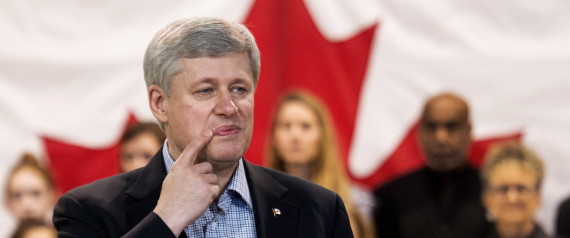OTTAWA - The parliamentary budget office is defending itself from a government attack on its latest report on Canada's plunging overseas development spending.
The Foreign Affairs Department accused the parliamentary budget watchdog of relying on "inaccurate financial information" in a report that said spending on poverty reduction shrank 23 per cent in the first six months of the last fiscal year.
"Moreover, the report suggests that the level of expenditures by the end of the second quarter is an accurate reflection of Canada’s disbursement plans for the full fiscal year, which is not the case," the department said in a Monday news release.
This is the latest public scrap between the Harper government and Parliament's budget office.
In an interview with The Canadian Press, Arun Thangaraj, the director general of financial planning and management for Foreign Affairs, said the report does not present the full picture.
He said the 23-per-cent figure was accurate, but said the percentage would become lower in the next six months as more funds are spent.
Mostafa Askari, the deputy parliamentary budget officer, said his office took that factor into consideration in its report, when it cited "timing differences of disbursements" as a factor for spending decline.
"In their (Foreign Affairs) press release, they have not actually disagreed with our numbers," he said.
Askari said his office reached out to Foreign Affairs with its findings several weeks before issuing its report, but got no response.
A senior Foreign Affairs official confirmed that was the case.
"We can acknowledge that PBO did reach into the department, but we never connected with them on it before the report was published," Ken MacKillop, the department's assistant deputy minister for public affairs, said in an interview.
The office of Development Minister Christian Paradis declined comment.
The PBO report offered a contrast to the high-profile, big-ticket aid projects touted by the Harper government, including its multibillion-dollar commitment to the health of children and mothers in poor countries.
It said that Canada's overall foreign aid as a percentage of GDP has dropped since Prime Minister Stephen Harper announced his Maternal, Newborn and Child Health Initiative in 2010.
In 2010-11, foreign aid stood at 0.34 per cent of GDP, but declined to 0.27 per cent in 2013-14, according to the Organization for Economic Co-operation and Development, which tracks the aid spending by rich countries.
Thangaraj said the OECD figure was an accurate reflection of Canada's overall aid spending, from his department, Foreign Affairs, and others such as the Finance Department.
Original Article
Source: huffingtonpost.ca/
Author: Mike Blanchfield
The Foreign Affairs Department accused the parliamentary budget watchdog of relying on "inaccurate financial information" in a report that said spending on poverty reduction shrank 23 per cent in the first six months of the last fiscal year.
"Moreover, the report suggests that the level of expenditures by the end of the second quarter is an accurate reflection of Canada’s disbursement plans for the full fiscal year, which is not the case," the department said in a Monday news release.
This is the latest public scrap between the Harper government and Parliament's budget office.
In an interview with The Canadian Press, Arun Thangaraj, the director general of financial planning and management for Foreign Affairs, said the report does not present the full picture.
He said the 23-per-cent figure was accurate, but said the percentage would become lower in the next six months as more funds are spent.
Mostafa Askari, the deputy parliamentary budget officer, said his office took that factor into consideration in its report, when it cited "timing differences of disbursements" as a factor for spending decline.
"In their (Foreign Affairs) press release, they have not actually disagreed with our numbers," he said.
Askari said his office reached out to Foreign Affairs with its findings several weeks before issuing its report, but got no response.
A senior Foreign Affairs official confirmed that was the case.
"We can acknowledge that PBO did reach into the department, but we never connected with them on it before the report was published," Ken MacKillop, the department's assistant deputy minister for public affairs, said in an interview.
The office of Development Minister Christian Paradis declined comment.
The PBO report offered a contrast to the high-profile, big-ticket aid projects touted by the Harper government, including its multibillion-dollar commitment to the health of children and mothers in poor countries.
It said that Canada's overall foreign aid as a percentage of GDP has dropped since Prime Minister Stephen Harper announced his Maternal, Newborn and Child Health Initiative in 2010.
In 2010-11, foreign aid stood at 0.34 per cent of GDP, but declined to 0.27 per cent in 2013-14, according to the Organization for Economic Co-operation and Development, which tracks the aid spending by rich countries.
Thangaraj said the OECD figure was an accurate reflection of Canada's overall aid spending, from his department, Foreign Affairs, and others such as the Finance Department.
Original Article
Source: huffingtonpost.ca/
Author: Mike Blanchfield

No comments:
Post a Comment